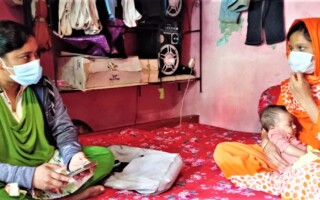In Bangladesh, the Population Council conducts research to increase use of reproductive health services, expand the contraceptive method mix, reduce sexual and gender-based violence, improve maternal and child health, reduce adolescent fertility, and help girls delay marriage. Our research informs national reproductive health programs and priorities, with a focus on strengthening capacity to deliver high-quality services to people in remote or otherwise underserved areas.
The Population Council began work in Bangladesh in the mid-1960s and opened an office in Dhaka in 1990. In the 1970s, the Council evaluated the landmark Matlab experiment that demonstrated the success of high-quality voluntary family planning programs. The success of the program led the government of Bangladesh to adopt the Matlab model as its national family planning strategy.
The Council has provided evidence and technical assistance to introduce emergency contraception into the national family planning program, integrate reproductive health services for men at rural service-delivery centers, provide life-saving obstetric care to women through vouchers, introduce performance-based incentives in the public sector to improve maternal and child health services, and provide mentoring to improve financial literacy among adolescent girls.




